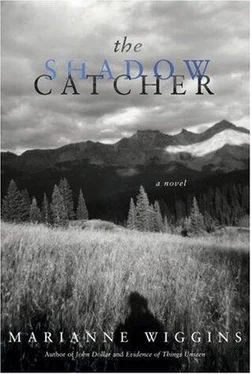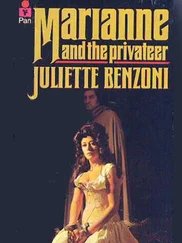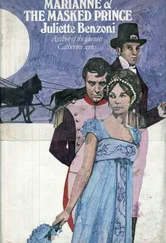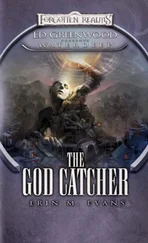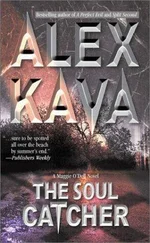True: she hadn’t found the gift yet for her mother.
Ten minutes , Amelia shooed them, laughing.
“Don’t watch us — turn around!” Hercules insisted.
Inside a funny little man rose up from behind a glass display case, wearing a round felt hat shaped like a can of peaches.
Fresh in, all foreign, he promoted.
We’re just looking, Clara told him.
She had cast a glance over her shoulder at her parents standing with their arms around each other in the sunlight dutifully aiming their attention toward the street.
“Shiny gold, some pearls?” the man in the canned hat was asking her, but Clara’s attention had been drawn to a specific case. “Are those…music boxes?”
Yes, miss.
“Even that one?” She’d pointed to a porcelain enameled box, palm-sized and painted with a single violet on its top.
The man unlocked the case and drew it out. Handing it to her, he prised open the lid and a tinkling phrase began to play, like notes played with a silver spoon on icicles.
Holy cow, just look at that, is that a compass, mister, Dad would sure be pleased to have a compass—
How much is it? Clara asked.
Was ten. For you…I take eight dollar.
Her heart had skipped but she was careful not to show it.
She cast a glance back at her parents.
“Let me see this compass, mister,” Hercules plowed on. “Don’t you think Dad could use a compass swell as this one, Clara?”
Don’t show it to him, Clara told the man. Think , Hercules. Why would Father need a compass? When would Father ever use one? You want to see that compass because it’s just the sort of useless thing that you would like…
Outside, just then, Amelia had laughed at something that Clara’s father had just said. Clara looked at her again, the way she threw her head back, her laugh ascending upward from her throat, climbing like a chordal scale in harmony, all tinkling light, just like the music box.
I’ll take it, Clara had informed the man.
He had nodded, she had smiled.
Her mother had continued laughing, and then there’d been the sound of distant thunder, only brief, too brief, and then the floor had shaken, all the glass had shaken, all the tiny lovely objects on display and then the light had dimmed, then dimmed again, as if one cloud and then another, larger, one had edged across the sun. There had been a single uncomprehending instant when she’d stared into the man’s contorted face and then there had been an almost deafening great booming roar, her ears had popped and every surface in the building took the impact of a great unmaking. There had been an eerie light like doom and when she’d turned to look out on the street the world had disappeared behind a wall of snow and ice and there was nothing on the other side of the window but a bafflement of snow a story high and in it, at the height of Clara’s head, a single human hand, her mother’s, stretched out as if to reach above the octave.
Dumb, Clara had stood for several precious moments before she’d understood that all the snow above them on the building’s slanted eaves and roof had fallen, tons of it, like a guillotine on both her parents. Break the glass she’d breathed and even before she, herself, could move, Hercules had swung a chair against the plate-glass window and was climbing through the broken shards and solid mass of snow to try to reach his mother’s fingers.
The man in the can-shaped hat had run in circles, clutching at his ears, crying out in a strange language Clara hadn’t understood — then he had made a beeline for the door, pulled it inward, open, and had faced a solid wall of ice pack from the avalanche. Instinctively, he’d run at it, leading with his shoulder but had hit it with a deadening thud as one would hit a granite mountain. The snow, so innocent and pliable in its particular, had compacted under pressure of its mass like particles of sand beneath the strictures of geology in the Mesozoic Age. Lithified, sandstone can take the form of quartz, and quartz was what the wall of snow looked like. The man in the canned hat had hit it with his fist and his fist had come back bloodied. Then the man had turned and run toward the back room of the shop, still crying in his foreign language, and soon Clara had heard his echoes through the wall of quartzy snow from the outside, distant, very distant and still unintelligible, as if arriving from another continent.
Clara had hauled Hercules, whose knees and hands were raw and bleeding, from the frozen pack of snow, across the shop floor out the back into the morning by the alley door. They’d run around the building through two feet of snow up to the corner where they’d turned to view the wreckage. Where there had been, minutes before, a recognizable storefront, its eaves, its upper stories and its roof, there now was a fresh glacier, sparkling in its novelty, a just-hatched mountain obscuring both the building’s lower stories and the sidewalk, breaching into the street it had extended like some lavish extra icing, extra scree, and Clara had seen at once the only avenue for rescue was from inside the shop. Passersby had sent a runner for police, another runner for the nearest fire brigade, and a hardy few had started gouging at the monster with their shovels.
Hercules , Clara had said. She’d knelt down and taken his hands in hers, cupping his raw knuckles, and looked him in the eyes and seen his fear as raw as his hands — he’d been so valiant in his response, so quick: in that instant a splinter of devotion had lodged inside her conscience. “Get Mr. Lodz,” she’d told him. Mr. Lodz was the widower from Poland who lived next door, the man for whom Hercules had swept the sidewalk and thinned hedges; the European gentleman whom Clara’s father had called Solomon of Minnesota. “He won’t want to come but he will once you tell him what has happened. Don’t be scared of him. Tell him we need help.”
Hercules had nodded, staring at her raptly, then he’d handed her a tied bandana from his pocket. Take this. The eight dollars, he had said. Pay someone to get them out.
He’d turned and run toward home, but not before she’d realized he still believed their parents were alive.
She could not remember, later, who it was that she’d enlisted to go back into the shop with her — some passerby, some incidental person who had been nearby when the avalanche occurred, on the street, perhaps, clearing snow, himself, with a shovel in his hands. She could not remember, later, what she’d told him but she got him to accompany her inside and then he, or perhaps she, had called for others to join in the effort. She could not remember things in proper order, later, all the things that had happened in the next four weeks except one vivid memory that stood out from all the rest and kept recurring. It was the moment that defined the next four weeks, the next six months — perhaps, even, the rest of her whole life. She’d been standing in the shop and she had reached across the breach where the window had once been and she had touched Amelia’s fingers. And in that instant she had known that she was dead. In that very instant she had watched her mother’s fingers blanch from red to blue to waxen yellow and she had drawn her own hand back as if her flesh, still so alive, was in violation of a trust, as if her own hand was the ghostly one. From that moment forward she’d responded only as a specter, as a stranger passing through her own dreams. Lodz had arrived — unshaven, in a black skullcap — with Hercules in tow, and Clara had succumbed to silence, then, succumbed to shock, allowing Lodz to take command and make decisions. So much to do, so many things — and her not knowing how to do them. Somehow, she had no memory how, they had returned home that afternoon and Lodz had asked where Clara’s father had kept the family’s documents and papers, where he’d kept the bills and the financial records. At some point, perhaps the next day, these things had been found and she remembered sitting with Lodz at the dining table, answering his questions. She remembered Lodz’s housekeeper being there, too, cleaning in the kitchen — and other people, faintly familiar, milling through the house, clutching her hands and saying things she hadn’t wanted to hear, can’t believe it, so very very sorry, dear . There had been a man one morning, standing in the front room with a ledger and a pencil, taking items off the mantelpiece, examining them. My house, he had snapped at Clara when she’d asked him who he was, before Lodz had arrived and forced him out. Six months they owed in rent, the man had shouted, six months , and soon after that Lodz had said she needed to start packing up what few things, what valuables, mementos of her parents, that she and Hercules might want in the future, might want to keep. She had already seen, going through the papers with Lodz, the unanswered letters from St. Paul Women’s Nursing Academy demanding payment, among other such demands, so she’d begun to understand the slippery ground that she and Hercules were on, but she was not prepared to learn how desperate their present situation was until Lodz confided, solemnly though gently, that very likely a constable would be arriving soon to force the sale of all of their belongings and evict them. “Take your mother’s jewelry,” he had said. “Things simple to pack. The furniture, the larger pieces — by law, we’re bound to let them seize them. Take the things that they won’t notice would be missing.” She remembered standing with him on the top floor in her father’s studio and Lodz asking, “Are these paintings worth anything, do you know?” When she hadn’t answered — being unable to — he’d said, “Well, they’re too large for you to take, anyway,” and she’d stepped forward to the easel where a portrait of her mother stood and showed him how to take the canvas off its frame and roll it, and together they had rolled all her father’s paintings into slender cylinders and Lodz had promised he would keep them safe.
Читать дальше
